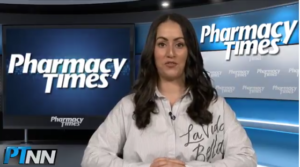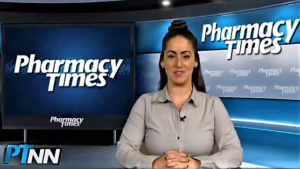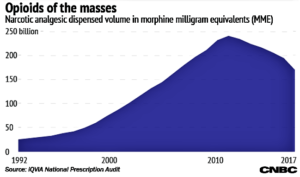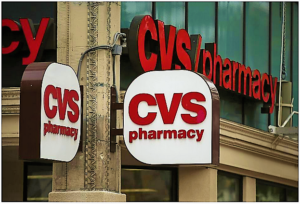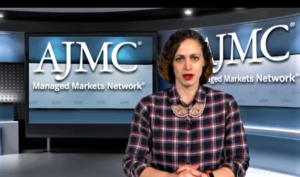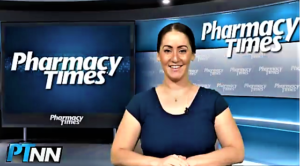- Pharmacy Week in Review: April 27, 2018 (pharmacytimes.com)
Nicole Crisano, PTNN. This weekly video program provides our readers with an in-depth review of the latest news, product approvals, FDA rulings and more.
- Pharmacy Week in Review: April 20, 2018 (pharmacytimes.com)
Nicole Crisano, PTNN. This weekly video program provides our readers with an in-depth review of the latest news, product approvals, FDA rulings and more.
- Pharmacy Week in Review: April 13, 2018 (pharmacytimes.com)
Nicole Crisano, PTNN. This weekly video program provides our readers with an in-depth review of the latest news, product approvals, FDA rulings and more.
- Study Estimates Nonoptimized Medications Cost the U.S. $528.4 Billion Annually (ptcommunity.com)
Researchers propose that pharmacists can help improve medication-related care and lower costs...the actual cost of prescription medications is more than just the dollars and cents on the bill, according to a recent study. Researchers...estimate that illness and death resulting from nonoptimized medication therapy costs $528.4 billion annually...when you’re sick, a health care professional prescribes you a medication, you take it as directed, and you get better...But what happens a lot of the time is the medication regimen is not optimized...the prescription may not be exactly appropriate for your indication—not quite the right medication or dose—or you just don’t take the medication for whatever reason, don’t take them as directed, or the medication causes an adverse event or a new health problem...the current cost of each possible consequence...illnesses and deaths that result from nonoptimized medication therapy to be $528.4 billion...Nonoptimized medication therapy is a massive avoidable cost. If medications were prescribed, monitored, and taken properly, we wouldn’t face this cost, and patients would be healthier...To improve medication-related care...authors...would like to see a systematic and coordinated effort to break down prescriber–pharmacist silos and expand comprehensive medication management programs, in which clinical pharmacists have access to complete medical records, improved dialogue with other members of a patient’s health care team, and input as a medication is prescribed—similar to what is now taking place at many U.S. Veterans Affairs clinics.
- How doctors in the US prescribe opioids — four charts (cnbc.com)Institute Reports Medicine Use and Spending in the US Review of 2017 Outlook to 2022 Medicine Use and Spending in the U.S. A Review of 2017 and Outlook to 2022 (iqvia.com)
The number of opioid pills prescribed peaked in 2011 and has since declined by 29 percent, according to a new report from the Iqvia Institute...The number of prescriptions accelerated its decline in 2017, with an even faster drop for high doses...More patients appear to be starting on medication-assisted therapies to treat opioid addiction...decline accelerated...helped by changes in regulation of opioid prescribing and in reimbursement policies from insurers...many of the programs that have been put into place in the past year or two seem to be having an impact...increased use of nonopioid pain treatments, like ibuprofen and other nonsteroidal anti-inflammatory drugs...as well as public awareness about overuse and misuse of opioids...
- DEA to share prescription drug data with 50 attorneys general, crack down on drugmakers (fiercehealthcare.com)
The Drug Enforcement Agency has reached an agreement with 50 attorneys general to share prescription drug data with one another to support ongoing investigations...from its Automation of Reports and Consolidated Orders System, which collects 80 million prescription drug transactions from manufacturers and distributors each year...Attorney General Jeff Sessions...said the data-sharing pact will “make both the DEA and our state partners more effective at finding evidence of crime.”...Exactly how that data sharing agreement would operate remains fuzzy...
- CVS’ Caremark customers now have a tool that makes it easier to find less expensive drugs (cnbc.com)
CVS Health is introducing a system to provide customers with greater insight into drug costs and less expensive alternatives. The plan will first be available to those using CVS' pharmacy benefit manager Caremark. Consumers are often frustrated by the difficulty of comparing the cost of treatments...CVS Health wants to make it easier for its pharmacists to find less costly drugs for patients...The drugstore chain is introducing a system that will check for less expensive alternatives, higher quantities at lower costs and discounts. CVS hopes it can help lower costs for its customers and in doing so, make sure they pick up their prescriptions...We want to be known as the retail pharmacy that does the most to help save patients money...The power of this tool, the RX Savings Finder, is we have access to the information that we need to be able to provide options to our customers to save them money...
- This Week in Managed Care: April 20, 2018 (ajmc.com)
Laura Joszt, Managing Editor at The American Journal of Managed Care. Welcome to This Week in Managed Care from the Managed Markets News Network
- This Week in Managed Care: April 13, 2018 (ajmc.com)
Laura Joszt, Managing Editor at The American Journal of Managed Care. Welcome to This Week in Managed Care from the Managed Markets News Network
- Pharmacy Week in Review: April 6, 2018 (pharmacytimes.com)
Nicole Crisano, PTNN. This weekly video program provides our readers with an in-depth review of the latest news, product approvals, FDA rulings and more.

